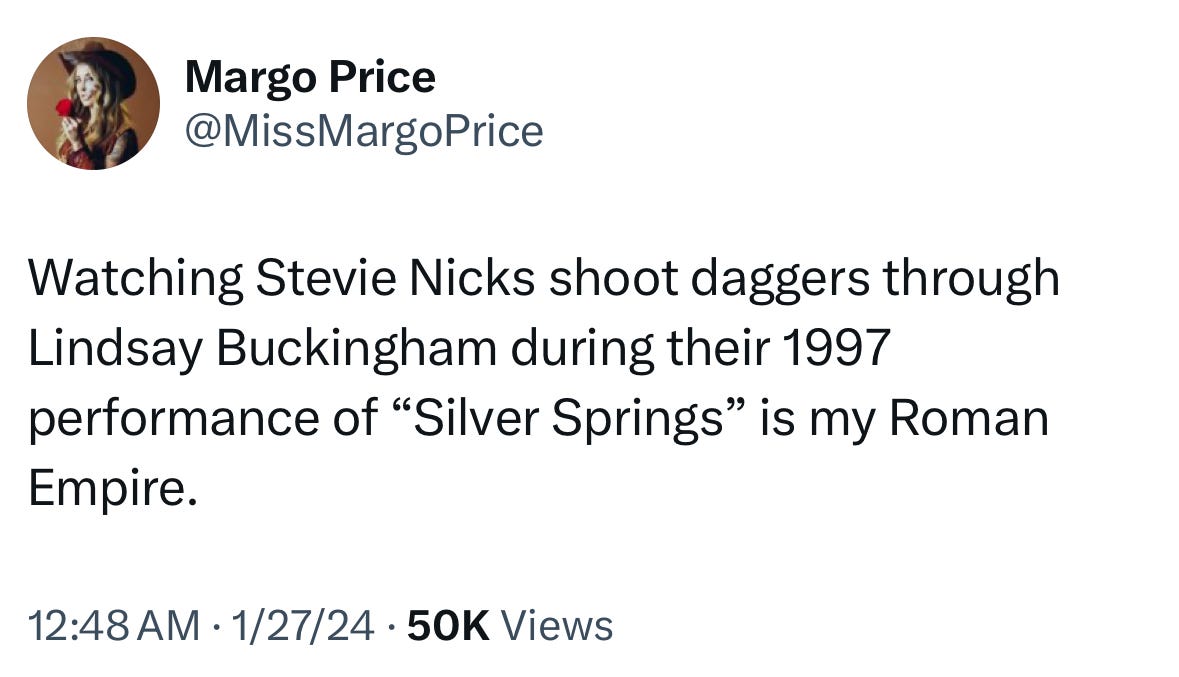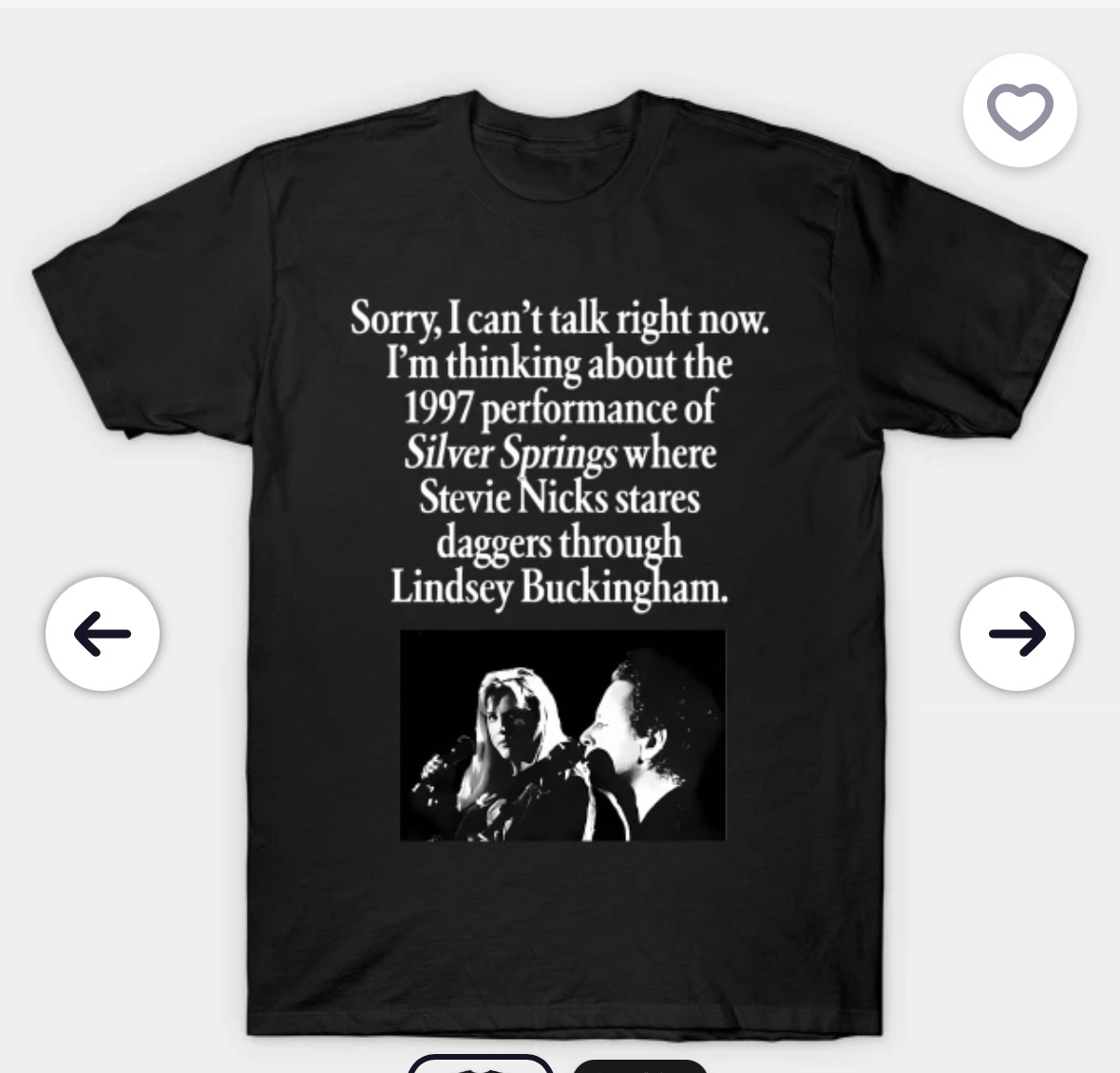PSA: My Substack is free to all readers. I do, however, welcome financial support. Your contributions – whether one-time or recurring, large or small, help me take care of my kids and continue to make writing a full-time occupation. I have an account on the platform Buy Me a Coffee, and you can do just that (in $5 increments), or choose to become a patron. There is no obligation, only my immense gratitude. Thank you!
On Tuesdays and Thursdays, I drive the children to school. I drop David off first, as his middle school is close to his mother’s Mid-City home. Heloise’s academy is in downtown L.A., and so two mornings a week, my daughter and I get twenty minutes together on the eastbound 10 freeway. My daughter turns 16 in less than two months; we’ve already scheduled her driving test for the day after her birthday. Very soon, if all goes well, we will not have these car rides together. I will miss them.
Each morning, Heloise connects her phone to my car’s Bluetooth, and over the course of the commute, I get to hear six or seven songs that have captured her imagination. Her taste is reasonably eclectic: Kendrick Lamar, Tyler Childers, Gracie Abrams. (We have moved on from Swiftiehood.) Occasionally, she’ll choose something much older. Yesterday, it was Fleetwood Mac’s celebrated live version of Silver Springs. I gasped in surprise when it came on, and as we inched towards the Hoover Avenue exit, father and daughter lip-synced together.
Some of you know this, but many may not. The lyrics to Silver Springs were written by lead vocalist Stevie Nicks, after a painful breakup with her Fleetwood Mac bandmate, lead guitarist Lindsey Buckingham. The song features a famous tempo shift, and this searing chorus:
Time cast a spell on you, but you won't forget me
I know I could have loved you
But you would not let me
I'll follow you down 'til the sound of my voice will haunt you
You'll never get away from the sound of the woman that loves you
In the live version, filmed at Warner Brothers studio for an MTV broadcast in 1997, Nicks turns to Buckingham and sings these lyrics directly to him. Keenly aware of the cameras, Nicks uses her voice and her gaze to “burn a hole into the soul” of her former lover (and one-time classmate at the Bay Area’s Menlo-Atherton High School.) Twenty-seven years after it was filmed, the TikTok generation has discovered the song – and turned Nicks, a paradigmatic Boomer, into a Gen Z icon. “There’s something so satisfying about looking your ex in the eye after 20 years and singing your breakup song to them,” one young woman told British GQ, part of an entire article earlier this year on the surging popularity of Silver Springs.
In a tweet earlier this year, country singer Margo Price summarized the views of many young women who weren’t even born when the MTV special was taped:
And you can order a t-shirt.
There’s no denying it’s a fantastic song. It is fun to watch Nicks stare down Buckingham as she sings, seeming to hold him transfixed. They are the only two Americans in the band, and if you watch the video, it’s clear that the English members of Fleetwood Mac are affectionately bemused by the extraordinary emotional charge between their lead singer and guitarist. The song was already 20 years old in 1997. The emotions may have been real, but they are also practiced and familiar. These are two people on the cusp of fifty who’ve been at each other’s throats and in each other’s beds since they were teenagers together in San Mateo County’s most affluent neighborhood.
I am pleased that my daughter has discovered this classic. That is not why I write about it.
I write because there is much that an aspiring gentleman can learn from Lindsey Buckingham. Even if we stipulate that each had their part, the general view is that he behaved badly towards Stevie. Yet it is Lindsey, after all, who wrote the music to the song – and plays the shimmering guitar solo that serves as Silver Springs’ delicate, beautiful bridge. It is Lindsey who organizes those gorgeous, spine-tingling chord progressions in service of allowing a woman to tell her side of the story. It is Lindsey who accompanies her voice with his guitar and his soft harmony. It is Lindsey who doesn’t just stand there and take a woman’s incandescent anger, it is Lindsey who helps make that anger into a cultural touchstone. It is Lindsey who refuses the temptation to write his own sad “diss track” to set the record straight.* It is Lindsey who - as any gentleman should - lets a woman have the last word.
It is Lindsey who understands that if a gentleman cannot be the partner a woman longed for, he can still be her loyal collaborator as she unfurls a gripping tale of regret, loss, and rage. As a man who has spent much of his life disappointing and betraying women who loved him, I have struggled with the question of how best to cope when confronted with their pain and anger. There is no defending the indefensible, but at the same time, it is very difficult to stand there and be a metaphorical (and alas, sometimes literal) punching bag. Lindsey Buckingham is a splendid exemplar: stand there, take her anguish, but don’t just take that pain – amplify and exalt it.
When someone who loved you stronger than you could feel writes the words, “You’ll never get away from the sound of a woman who loved you,” you write her a melody – and increase your already substantial fortune by playing along as she belts those words to you in C-major.
It is, as I’ve said, a very fine performance. It is also, for me, an enduring lesson in masculine virtue.
A postscript: I should have been in the audience the night in May 1997 that this performance was taped. At the time, I was coming to the end of my fourth year at Pasadena City College, and a student of mine worked for Warner Brothers. He offered me passes to come see the show (just over the hill in Burbank). Like a fool, I told him I already had plans. Those plans involved a date with a young female student with whom I did not wish to be seen in public. That relationship was fleeting and inconsequential, a choice made in haste (and lust) that I have had decades to regret. It would have done me good to see Lindsey Buckingham stand there and “take it” so resolutely. I might have learned something.
*Some readers opine that both “Go Your Own Way” and “Tusk” might constitute diss tracks! I accept the correction .





They are both consummate professionals and exquisite performers, and while I have no doubt that the feelings they channel when performing were and are real, in interviews, they speak like mature, healed people. Perhaps the relationship is bearable because it is *performative* incandescent anger. What's between the two is actually resolved, and now they're both using it as an allegory for what is a nearly universal experience. Also, they can both go home to cry on their pillows stuffed with $100 bills.
Wasn't "Tusk" Lindsey's dis track? I know it was really hard for Stevie to sing on it since it was about her affair with Mick Fleetwood.